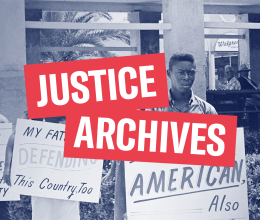
Decision comes in case of AFSCME and ACLU’s challenge to Gov. Scott’s Executive Order requiring employees to submit to invasive searches; lower court previously found program unconstitutional
FOR IMMEDIATE RELEASE: May 29, 2013
CONTACT: ACLU of Florida Media Office, (786) 363-2737, media@aclufl.org
MIAMI- Today, the U.S. Court of Appeals for the 11th Circuit issued an opinion rejecting the argument made by the Scott administration that the state has the authority to require all state employees to submit to invasive and humiliating drug tests as a condition of employment. The decision comes in the case of AFSCME v. Rick Scott, in which the American Civil Liberties Union (ACLU) of Florida, on behalf of the Association of Federal, State, County and Municipal Employees (AFSCME), the state’s largest union of public employees, argued against the constitutionality of an Executive Order issued by Gov. Rick Scott which a lower court had previously found violated the Fourth Amendment.
“With today’s decision, the 11th Circuit becomes the latest court to reject what it calls ‘a testing policy of unprecedented scope’ by Governor Scott,” stated ACLU of Florida staff attorney Shalini Goel Agarwal, who was lead counsel in the case. “It would be foolish of the governor to continue pushing to implement his across-the-board drug testing regime when the court clearly states that, under the Fourth Amendment, many of the individuals covered by the executive order cannot be subjected to invasive and humiliating searches just because they are government employees. We look forward to returning to the district court where the Governor will have to show how each of his 85,000 employees presents a serious safety risk in order to test them. Without a safety-related reason or suspicion of drug use, people can’t be required to sacrifice their Constitutional rights in order to serve the people of Florida.”
“Governor Scott’s relentless quest for urine testing has once again been rejected by a federal court,” stated Alma Gonzalez, Special Counsel, AFSCME Council 79. “No matter how much Governor Scott wants people to believe otherwise, the fact remains that people don’t have to give up their privacy, dignity and constitutional protections in order to serve our communities. Public employees should not be subject to arbitrary testing without probable cause or consent.”
The 2011 Executive Order mandated all state employees and job applicants in executive branch agencies under the purview of the governor (about 77% of the state workforce) submit to invasive tests of their bodily fluids, even if there was no suspicion of drug use. On Tuesday, May 31, 2011, the ACLU of Florida filed a lawsuit challenging the order on behalf of the AFSCME Council 79, which represents over 40,000 public workers who were subject to the suspicionless drug-testing program under the order. In April of 2012, U.S. District Judge Ursula Ungaro enjoined the order, ruling that requiring state employees to submit to suspicionless, invasive searches without suspicion of drug use violated the Fourth Amendment’s ban on unreasonable searches.
The state appealed that decision, leading to the 11th Circuit’s decision today. Citing Lebron v. Wilkins, a recent case in which the ACLU of Florida also successfully challenged a Florida program requiring people to submit to suspicionless searches, the court found that: “Surrendering to drug testing in order to remain eligible for a government benefit such as employment or welfare, whatever else it is, is not the type of consent that automatically renders a search reasonable as a matter of law.” The case now returns to the lower court where the governor must justify, job-by-job, why there is a special need for the drug testing.
“The idea put forth by our governor and his attorneys - that people can be forced to surrender their constitutional rights simply because they are government employees – has once again been rejected by yet another federal court,” stated ACLU of Florida Executive Director Howard Simon. “The lawsuit on behalf of AFSCME is one of about a dozen lawsuits that the ACLU has filed or in which the organization has submitted a friend-of-the-court brief challenging policies of the Scott Administration since January 2011. The cases include challenges to voting restrictions, a gag order on doctors and health care workers about inquiring how guns are stored in the home, and mandatory urine testing for government employees and applicants for temporary assistance from the state through the TANF program.”
“It is a sad commentary that we have had to go to court so frequently to protect Florida citizens from their own government,” Simon added.
The ACLU of Florida most recently challenged across-the-board drug testing in a separate case challenging the drug testing policy of the City of Key West. The complaint in that case is available here: http://aclufl.org/resources/key-west-mandatory-drug-testing-complaintpdf
A copy of today’s decision from the court is available here: http://www.ca11.uscourts.gov/opinions/ops/201212908.pdf


